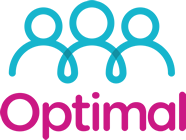Understanding Change Management
Change is inevitable and we keep encountering it at many times during our lives. Sometimes the change may be relatively small with quite limited and short-term consequences. At other times the change may be much greater with significant impact and consequences.
When we say Change Management what do we mean?
In the past, change management carried with it the connotation of being activities carried out by the HR department. However, over the last decade, change management has emerged as a structured discipline that business leaders are seeing as a ‘must have’ and not just a ‘nice to have’ when major projects or initiatives are launched.
Change management represents a large and rapidly growing discipline that is being increasingly deployed by all types of businesses. It refers to a structured approach that facilitates the adoption of change by groups and individuals within a business. The process of how businesses change draws on many disciplines from psychology and behavioural science to engineering and systems thinking. The underlying principle is that change does not happen in isolation. Change impacts the whole business and each individual associated with it.
It is important to note that ‘businesses’ are not the ones that change; it is the people within businesses that change. Therefore, the success of the project ultimately is measured by the difference in work done by each individual multiplied by the number of employees impacted by the change. Consequently, effective change management requires an understanding for, and appreciation of how one person makes a change successfully. Without an individual perspective, change management amounts to activities performed without goals or outcomes achieved.
ADKAR Model for change
Among the tools available to drive individual change, the ADKAR model developed by Prosci, known as a world leader in change management research and content creation, is commonly used. ADKAR is an acronym for Awareness, Desire, Knowledge, Ability, and Reinforcement. The ADKAR Model for Managing organizational change starts with understanding how to manage change with a single person.
In principle, to make a change successfully an individual needs:
Awareness of the need for change
Desire to participate and support the change
Knowledge on how to change
Ability to implement required skills and behaviours
Reinforcement to sustain the change
ADKAR describes successful change at the individual level and outlines the goals or outcomes of successful change. It is an effective tool for planning change management activities, diagnosing gaps, developing corrective action, and supporting managers and supervisors.
What actions need to take place to support each stage:
Awareness of the need for change
Sending a group email or posting on the Intranet won’t cut it I’m afraid. For people to buy into the change we need to explain it in full to them. All staff need to understand why we need to progress from the current way? What benefits there will be to the business and individual?
Desire to participate and support the change
We really need to sell the benefits so that the individuals want to change and do not feel forced.
Knowledge on how to change
Let’s make it easy for everyone. Do we need to offer awareness and information sessions, can we offer training and personal development? By fully equipping all individuals we make it easier for them to change.
Ability to implement required skills and behaviours
Has the training been sufficient? Would some staff benefit from reminders and overviews? Do all employees have the correct software and applications installed and working?
Reinforcement to sustain the change
Are we checking in and monitoring progress? Can we share good news stories and success factors to reinforce the new behaviours/processes etc? Have we celebrated the achievements made so far?
When we break it down and really consider the ADKAR model we can see how we can help individuals which in turn helps the business.
If you are thinking of implementing change but don’t know where to start then get in touch with us at Optimal PBS and we can help through every stage.











